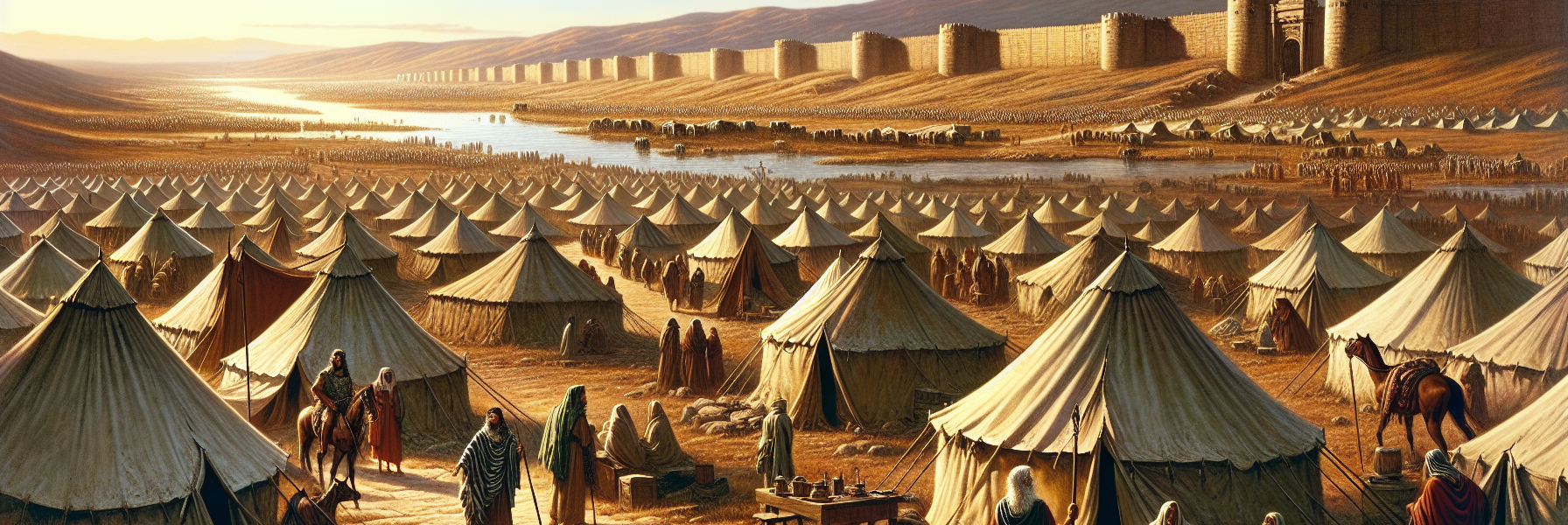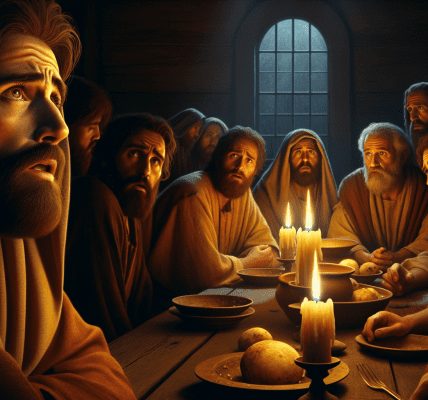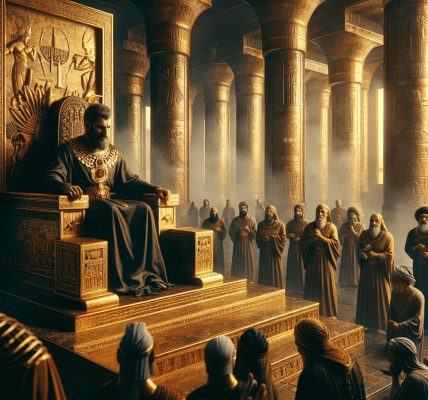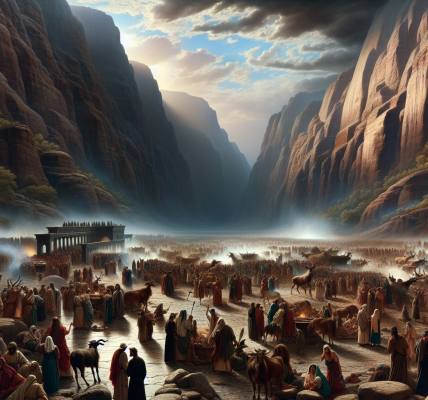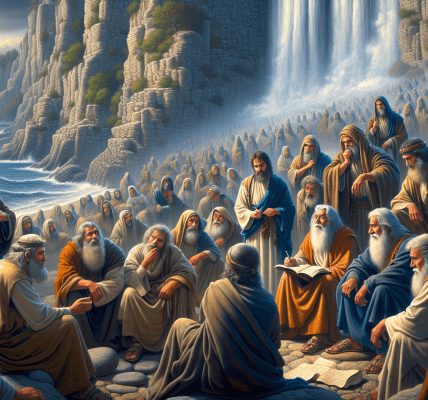**The Sacred Ground of Gilgal: A Story of Obedience and Renewal**
The sun had barely risen over the plains of Jericho when the Israelite camp stirred to life. The vast multitude of tents sprawled across the land near the Jordan River, their canvas fluttering gently in the morning breeze. The people of Israel had crossed the river on dry ground, just as their fathers had passed through the Red Sea, and now they stood on the threshold of the Promised Land. Yet, before they could claim their inheritance, there was a sacred work to be done—one that would mark them once more as the people of Yahweh.
Joshua, the steadfast leader chosen by Moses, stood outside his tent, his weathered face turned toward the horizon where the walls of Jericho loomed in the distance. The weight of leadership pressed upon him, but he did not waver, for the Lord had spoken clearly. The time had come to renew the covenant that had been neglected during the long years of wilderness wandering.
### **The Circumcision at Gilgal**
Gathering the elders of Israel, Joshua addressed them with firm resolve. “The Lord has commanded me to circumcise the sons of Israel a second time.” A murmur spread through the assembly. Many of the men who had left Egypt had died in the wilderness, and their sons, born during the forty years of wandering, had never received the sign of the covenant.
That very day, Joshua commanded flint knives to be prepared—tools sharp and precise, as had been used in the days of Abraham. The men of fighting age, those who would soon face the Canaanites in battle, submitted themselves to the ancient rite. The air was thick with tension, yet also with solemn reverence. Fathers reassured their sons, reminding them that this was the mark of Yahweh’s promise, the seal of their identity as His chosen people.
As the sun climbed higher, the sound of quiet prayers mingled with the rustling of the wind. The men bore the pain in silence, their hearts fixed not on their present discomfort but on the faithfulness of God. For this was no mere ritual—it was an act of surrender, a declaration that they belonged wholly to the Lord.
When the last man had been circumcised, Joshua named the place *Gilgal*, saying, “Today I have rolled away the reproach of Egypt from you.” No longer would they be seen as a band of wandering slaves, but as a nation consecrated to their God.
### **The Passover Feast**
Three days later, as the men recovered, the scent of roasting lamb filled the camp. The people gathered in families, their faces illuminated by firelight, as they celebrated the Passover. It had been decades since they had observed it properly, and now, in the land of promise, they remembered the night when death had passed over their ancestors in Egypt.
The taste of unleavened bread was bitter yet sweet, a reminder of both their haste in leaving bondage and the sweetness of God’s deliverance. Fathers recounted the stories to their children—how the blood of the lamb had saved them, how the Red Sea had parted, how manna had fallen from heaven. The younger generation listened with wide eyes, their hearts stirring with faith.
### **The End of the Manna**
The next morning, as the people awoke, they found no manna upon the ground. For forty years, the bread from heaven had sustained them, but now, in the land flowing with milk and honey, it ceased. Instead, the fertile fields of Canaan awaited them, ready to yield their bounty. The Lord was teaching them a new lesson—He would provide, but now through the labor of their hands and the fruit of the land He had given them.
### **The Commander of the Lord’s Army**
One evening, as Joshua walked alone near the outskirts of the camp, his thoughts heavy with the coming battle, a figure appeared before him. A man stood with a drawn sword in his hand, his presence radiating power and holiness. Joshua approached cautiously.
“Are you for us, or for our adversaries?” he demanded.
The warrior’s reply sent a shiver down Joshua’s spine. “No, but as Commander of the army of the Lord I have now come.”
At once, Joshua fell facedown in reverence. “What does my Lord say to His servant?”
“Take off your sandals, for the place where you stand is holy.”
Just as Moses had stood barefoot before the burning bush, Joshua now stood on sacred ground. This was no mere angel—this was the Lord Himself, appearing as the Divine Warrior, ready to lead Israel into battle. The message was clear: the conquest of Canaan would not be won by human strength alone, but by the power of Yahweh.
### **A People Prepared**
As the days passed, the Israelites remained at Gilgal, healing, feasting, and waiting upon the Lord. The men, now marked by the covenant, stood ready. The people, nourished by the Passover, remembered their redemption. And Joshua, having met the Commander of the Lord’s host, knew that the battle ahead was not theirs, but God’s.
The walls of Jericho stood tall and imposing, but the Lord had already declared their fall. The Israelites, once a people burdened by the shame of Egypt, now stood as a nation renewed, consecrated, and ready to walk in the promises of Yahweh.
And so, with hearts full of faith, they prepared to march forward—not by might, nor by power, but by the Spirit of the Lord.
